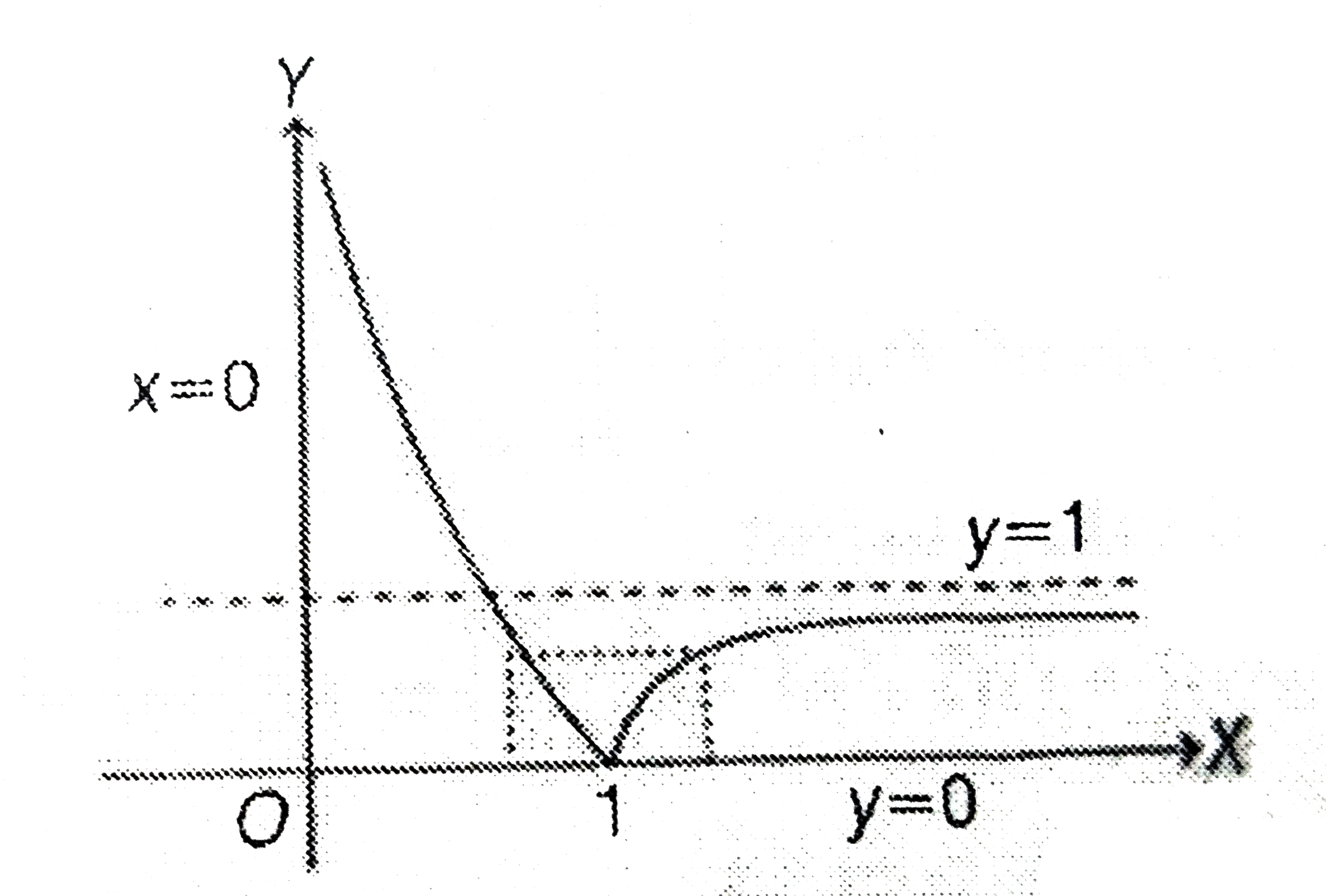Let a function f:(0,∞)→[0,∞) be defined by f(x)=∣∣∣1−1x∣∣∣. Then f is
A
injective only
B
both injective as well as surjective
C
not injective but it is surjective
D
neither injective nor surjective
Video Solution
Text Solution
The correct Answer is:D
We have, f(x)=|x−1|x=⎧⎨⎩−(x−1)x, if 0<x≤1x−1x, if x>1
={1x−1, if 0<x≤11−1x, if x>1
Now, let us draw the graph of y=f(x)
Note that when x→0, then f(x)→∞, when x=1, then f(x) = 0, and when x→∞, then f(x)→1

Clearly, f(x) is not injective because if f(x)<1, then f is many one, as shown in figure.
Also, f(x) is not surjective because range of f(x) is [0,∞] and but in problem co-domain is (0,∞), which is wrong.
∴f(x) is neither injective nor surjective
|
Topper's Solved these Questions
- FUNCTIONSBOOK - IIT JEE PREVIOUS YEARCHAPTER - FUNCTIONSEXERCISE - INVERSE AND PERIODIC FUNCTIONS
11 Videos
- FUNCTIONSBOOK - IIT JEE PREVIOUS YEARCHAPTER - FUNCTIONSEXERCISE - COMPOSITE OF FUNCTIONS
19 Videos
- ELLIPSEBOOK - IIT JEE PREVIOUS YEARCHAPTER - ELLIPSEEXERCISE - EQUATION OF CHORD OF CONTACT, CHORD BISECTED AT A GIVEN POINT & DIAMETER
3 Videos
- HYPERBOLABOOK - IIT JEE PREVIOUS YEARCHAPTER - HYPERBOLAEXERCISE - EQUATION OF CHORD OF CONTACT,CHORD BISECTED DIAMETER,ASYMPTOTE AND RECTENGULAR HYPERBOLA
3 Videos
Similar Questions
Knowledge Check
Let a function f:(0,∞)→[0,∞) be defined by f(x)=∣∣∣1−1x∣∣∣. Then f is
Ainjective but not surjectiveBboth injective as well as surjectiveCnot injective but it is surjectiveDneiher injective nor surjectiveLet f:(1→∞)→(1,∞) be defined by f(x)=x+2x−1. Then
Af is 1 - 1 and ontoBf is 1 - 1 but not ontoCf is not 1 - 1 but ontoDf is neither 1 - 1 nor ontoLeet f :[0,∞)→[0,2] be defined by f(x)=2x1+x then f is
Aone-one but not ontoBonto but not one-oneCboth one-one and ontoDneither one-one nor onto
Let F:[3,∞]→[1,∞] be defined by f(x)=πx(x−3), if f−1(x) is inverse of f(x) then the number of solution of the equation f(x)=f−1(x) are
View SolutionLet the function f be defined by f(x)=(2x+11−3x) then f−1(x) is
View SolutionIf the function f:[1,∞)→[1,∞) is defined by f(x) = 2x(x−1) is invertible, then f−1(x) is
View SolutionLet f:[4,∞)→[1,∞) be defined by
f(x)=11x(4−x)∀x≥4
Then f−1(x) is given by
View SolutionLet a function f be defined by f(x)=x-|x|x for x≠0 and f(0)=2. Then f is
View Solution
